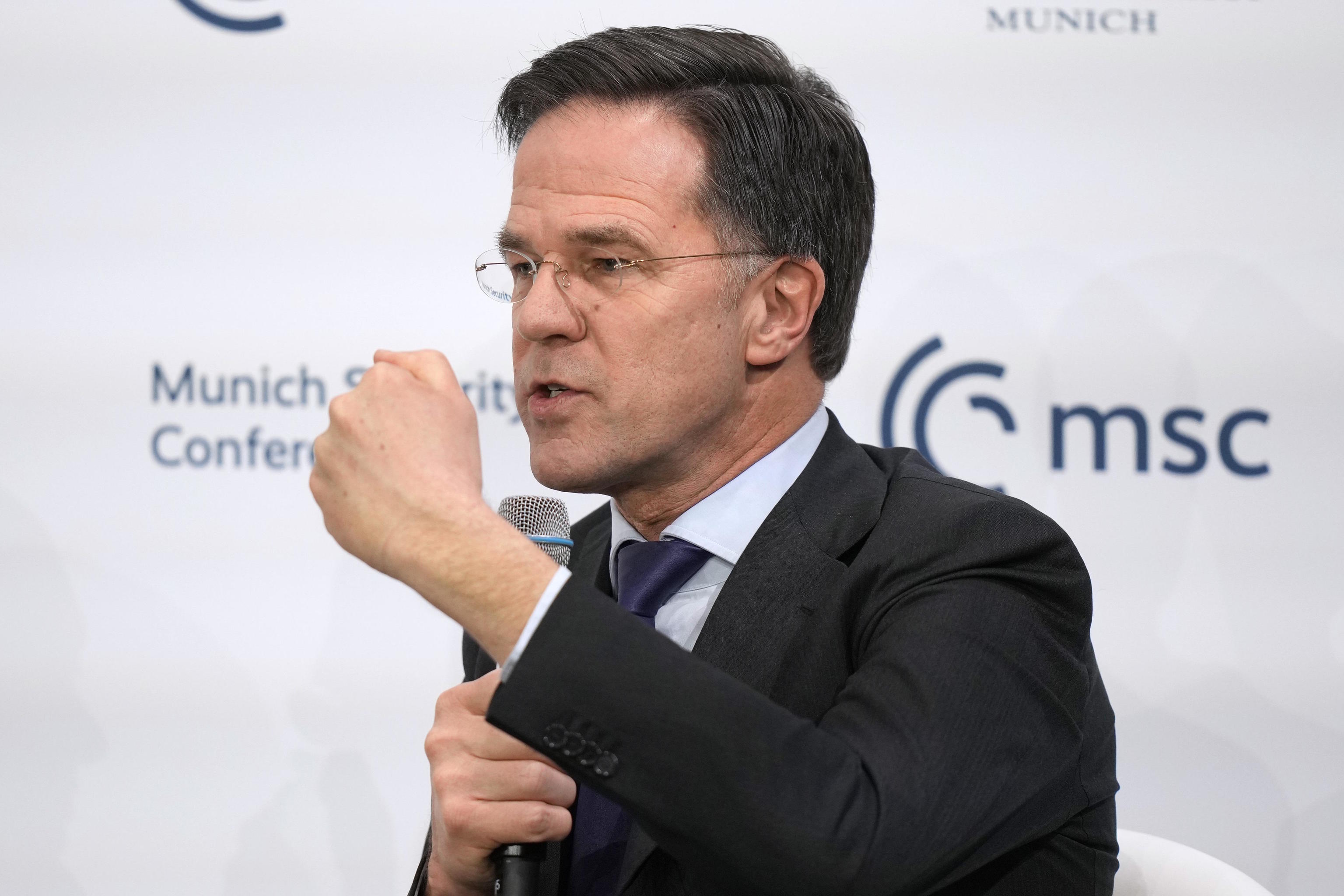The European Union considers President of the Government Pedro Sánchez's decision to accelerate Defense spending with the plan of just over 10,000 million euros announced yesterday as positive. They "welcome" it, according to sources from EL MUNDO, using a classic term in the EU capital that often comes with a caveat. And in this case, that caveat is very important because Brussels believes that the Spanish government's major project is not at all sufficient to face the threats that Europe must confront.
"More is needed, more than 2% [of GDP], we must aim for 3%, as [Mark] Rutte states is necessary," Brussels points out in reference to the goals set by the NATO Secretary General. Indeed, the head of the North Atlantic Treaty Organization has indicated that this will be the minimum figure imposed at the next Alliance summit, to be held next June in The Hague.
In fact, there are voices suggesting that the figure could go even higher. Not up to 5% of Gross Domestic Product, as demanded by the United States, but it is very likely that the next target will be set at 3.5% of GDP. This means that despite the significant increase announced by Sánchez, Spain will still fall short of the required levels.
Now, it remains to be seen how the government will be able to implement and develop all the measures announced this year, which does not seem easy. It also needs to be verified that the planned investments fall within what NATO considers Defense spending. The president stated yesterday that yes, everything has been designed using the Alliance's metrics, but this will be one of the factors to confirm in the documentation that the government sends to the EU capital.
In recent months, the government has been pushing for an expanded definition of Defense to include aspects such as combating climate change, which did not sit well with some of the allies with higher military spending and raised suspicions. "They want to desperately inflate spending," diplomatic sources pointed out after the March presidents' meeting.
Pressure from Europe and NATO
However, in any case, Sánchez's "decision" shows that the government had no choice but to succumb to strong pressures from the EU and NATO. The messages have been constant, from Rutte and also from the President of the European Commission, Ursula von der Leyen.
The former Prime Minister of the Netherlands even went as far as to threaten governments that invest less that if they did not accelerate spending, they would receive a call from "a very nice man in Washington, who may have less patience." This was in February when he specifically mentioned the 3% figure that is now being recalled in Brussels and demanded that nations below 2% accelerate their investment immediately.
Later, in March, he seemed more relaxed, even stating that Spain wanted to reach 2% before summer. Although the government later denied these words and NATO clarified them, it is now evident that Rutte was already aware of Sánchez's plans. In an apparent slip or perhaps as a way to maintain pressure, he preempted what the government is going to do: present a clear and immediate roadmap at the mentioned meeting in The Hague to appease criticisms.
Yesterday, after learning about the plan and speaking with Sánchez, Rutte simply mentioned on his social media that he welcomed "the announcement to reach 2% more quickly." Simply a variation of the EU's "welcome."
Von der Leyen, on her part, has also been very clear about the need to invest more and to reach 3% now. She did not directly mention Spain, avoiding embarrassment for her close ally Sánchez, but the messages to Spain have been clear. In recent weeks, the trade war has almost monopolized the debate in Brussels, but the Commission always emphasizes that increasing military spending is one of its top priorities.
In this context, the President of the Government has been uncomfortable in Brussels in recent months. Out of place, which is something he is not accustomed to at all. So much so that in Defense-focused summits, he significantly limited his interventions with the press, and there were even occasions when he made no statements at all. Something completely unusual for Sánchez, who always likes to show his influence in the EU capital.
But the pressure he has faced in Defense has been significant. The situation has changed in Europe, both politically, as the EU has shifted significantly to the right, and in terms of spending priorities. "Sánchez is not doing enough in Defense," community sources pointed out at the beginning of the year, and that remains the discourse despite the effort presented by the government yesterday.
